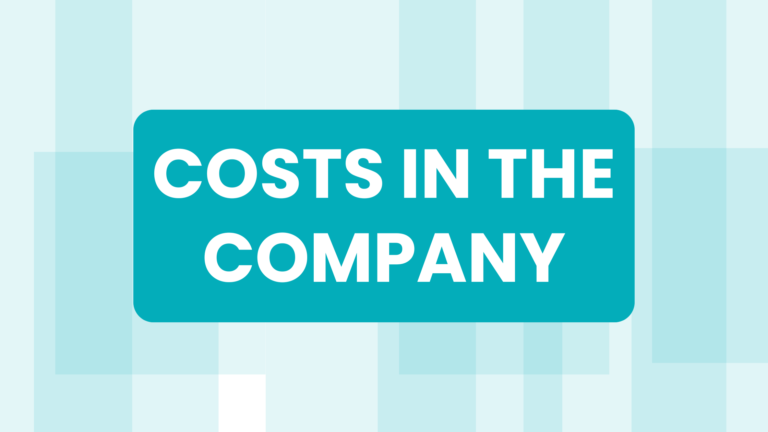Every company, regardless of its size and industry, incurs costs associated with running a business. Those planning to start their own business need to be aware that it involves a lot of responsibility and the need to incur various expenses.
For many entrepreneurs, the issue of deducting expenses can raise many questions. What expenses can be considered as business expenses? How are costs different from ordinary expenses? What is meant by the colloquial phrase “put in costs”?
What is a business expense?
A business expense is an expense incurred for the purpose of generating business revenue or to maintain the source of that revenue.
Why is higher cost better for you?
Generating high company costs may seem contradictory, as it means large expenses that require financial resources. However, for entrepreneurs who account on a general rules or flat-rate basis, higher costs mean lower income tax.
For example, those using the tax scale pay 12% tax up to a threshold of 120 000 PLN. 32% is paid above that amount. Flat tax the rate is 19%. That’s why many small business owners are trying to cut expenses and increase costs at the same time. The key here, however, is not to break the rules.
How do we divide them? Understanding costs: fixed and variable
Fixed costs are expenses that are invariable, regardless of the level of production or sales, such as office rent, employee salaries and utilities.
Variable costs, on the other hand, are dependent on the company’s operations, such as raw materials, production, marketing or transportation costs.
The first step in cost management is to understand exactly how each category affects the budget. It is worthwhile to run regular cost reports to help assess what expenses can be optimized or reduced.
What can be “put in costs”?
Before you book an expense as a deductible expense, it is a good idea to make sure that there is a clear link between the purchase and an increase in revenue in your company. Check whether the expense actually contributed to an increase in revenue or improved efficiency of your business.
It is also impossible to list all the costs, but the purpose of this article is not to present them in full. However, there are universal expenses. For example, can a computer be a business expense for a gardener? Yes, if the gardener proves that the computer is necessary for managing work schedules, keeping records, gardening projects or ordering materials. In that case, the computer becomes an expense that the gardener incurs to run his business.
So, for an expense to qualify as a deductible expense, it must:
- related to business activities,
- incurred for the purpose of obtaining, securing or preserving revenue,
- properly documented,
- not be listed in the Personal Income Tax Act as a non-deductible expense.
These costs can be audited by the tax authorities. They may assess whether included costs are related to the business and, if in doubt, may question some of them. In such case, financial or even legal consequences are possible. The entrepreneur is required to prove that the expense is related to the business.
What are we sure not to get credit for ?
While the Personal Income Tax Act does not contain a catalog of goods and services that can qualify as an expense, it does list those that certainly should not be treated as such. These include, among others:
- depreciation allowances for cars, above the value of 150 000 PLN,
- expenses for auto-casco insurance of cars in excess of car insurance with a value of 150 000 PLN,
- the cost of fines and penalties,
- interest costs incurred as a result of late payment of tax obligations,
- representation costs.
How do you document all this?
In order to consider an expense as an cost, an entrepreneur must have it properly documented. The correct documents are:
- invoice,
- bill,
- a receipt with the purchaser’s NIP number (up to 450 PLN),
- parking ticket or highway tolls,
- proof of postage incurred,
- contract or account related to the contract.
Correct accounting as the key to your company’s success
Costs in business reduce the tax base and thus the amount of income tax. It is worth remembering that any business-related investment can reduce the tax base.
Entrepreneurs often find it difficult to qualify expenses for deduction. For new companies, it is advisable to use accounting firms or obtain an individual tax interpretation. It can provide additional protection during a possible tax audit.
As an accounting company, we offer professional support in managing company expenses or identifying deductible costs. Our experience allows you to efficiently classify expenses, manage your budget and minimize risks. We provide a comprehensive service so that you can focus on the development of your business. You can be confident that accounting issues are in the right hands.

